
The United Nations Office for Outer Space Affairs (UNOOSA) is an office of the U.N. Secretariat that promotes and facilitates peaceful international cooperation in outer space. It works to establish or strengthen the legal and regulatory frameworks for space activities, and assists developing countries in using space science and technology for sustainable socioeconomic development.
India's remote sensing program was developed with the idea of applying space technologies for the benefit of humankind and the development of the country. The program involved the development of three principal capabilities. The first was to design, build and launch satellites to a Sun-synchronous orbit. The second was to establish and operate ground stations for spacecraft control, data transfer along with data processing and archival. The third was to use the data obtained for various applications on the ground.
The Malaysian Centre of Remote Sensing (MACRES) was a Malaysian remote sensing centre. An agency under the Ministry of Science, Technology and Innovation (Malaysia). Its role was to provide data and solutions for remote sensing applications. In 1991, it was recognised as a federal institute of research in the field of remote sensing and related technologies. The main centre was located in Kuala Lumpur and the ground receiving centre was located in Mentakab, Pahang, Malaysia.

The National Space Agency, abbreviated ANGKASA, was the national space agency of Malaysia. It was established in 2002 and its charter aims to upgrade, stimulate and foster the country's space programme through integrated and coordinated efforts by developing and applying space technologies.

The Angkasawan program was an initiative by the Malaysian government to send a Malaysian to the International Space Station on board Soyuz TMA-11. The program was named after the Malay word for astronaut, Angkasawan. It resulted in Sheikh Muszaphar Shukor becoming the first Malaysian in space on 10 October 2007.
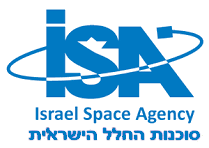
The Israel Space Agency is a governmental body, a part of Israel's Ministry of Science and Technology, that coordinates all Israeli space research programs with scientific and commercial goals.
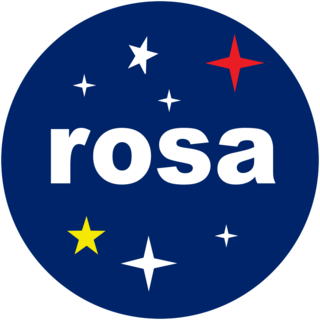
The Romanian Space Agency is a public institution with extra-budgetary funding that coordinates Romania's national space technology research programs and space research-related activities. ROSA was founded in 1991 and is subordinate to the Ministry of Education.

The Ministry of Science, Technology and Innovation, abbreviated MOSTI, is a ministry of the Government of Malaysia.
The Malaysian Remote Sensing Agency, abbreviated MRSA or ARSM, was a department responsible for remote sensing under the Ministry of Science, Technology and Innovation (Malaysia). On 20 February 2019, the Malaysian Cabinet had approved the merging of the Malaysian Remote Sensing Agency (MRSA) and National Space Agency (ANGKASA) to establish of Malaysian Space Agency (MYSA).
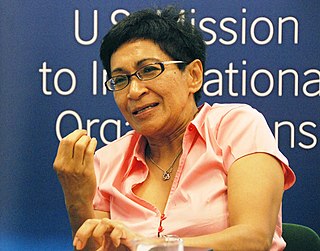
Emerita Professor Tan Sri Dr. Mazlan binti Othman is a Malaysian astrophysicist whose work has pioneered Malaysia's participation in space exploration. She was her country's first astrophysicist, and helped to create a curriculum in astrophysics at the national university, as well as to build public awareness and understanding of astronomy and space issues. She was appointed Director General of Angkasa, the Malaysian National Space Agency and served as the director of the United Nations Office for Outer Space Affairs in Vienna from 2007 to 2014.
Astronautic Technology Sdn Bhd or better known as ATSB was established on 1 May 1995 and is wholly owned by the Minister of Finance Inc under the supervision of the Malaysian Ministry of Energy, Science, Technology, Environment and Climate Change (MESTECC).

The Ministry of Defence, abbreviated MINDEF or KEMENTAH, is a ministry of the Government of Malaysia that is responsible for defence, national security, army, navy, hydrography, air force, armed forces, intelligence services, counterintelligence, military intelligence, national service, and veterans affairs.

The South African National Space Agency (SANSA) is South Africa's government agency responsible for the promotion and development of aeronautics and aerospace space research. It fosters cooperation in space-related activities and research in space science, seeks to advance scientific engineering through human capital, as well as the peaceful use of outer space, and supports the creation of an environment conducive to the industrial development of space technologies within the framework of national government.
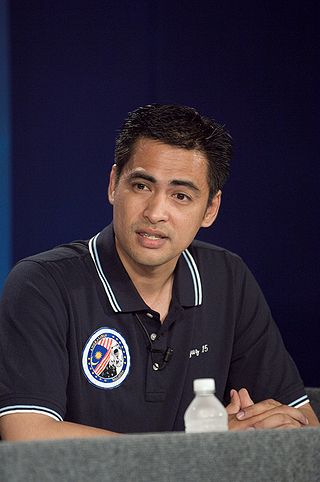
Science policy in Malaysia is regulated by the Ministry of Science, Technology, and Innovation. The ministry focuses on five areas: biotechnology, ICT policy, industry, sea to space and core science and technology. Other ministries, such as the Ministry of Agriculture and the Ministry of Health also have science departments. Training in scientific areas was promoted during the 1970s and 1980s. From 1987 to 1997 research and development used 0.24% of GNP, and in 1998 high-tech exports made up 54% of Malaysia's manufactured exports.
The National Space Centre or Pusat Angkasa Negara is a Malaysian mission control facility. This 400 acres centre is located at Sungai Lang near Banting, Selangor and is managed by the Malaysian Space Agency (MYSA). The space centre started construction in 2004 and completed phase I of the project in 2005.
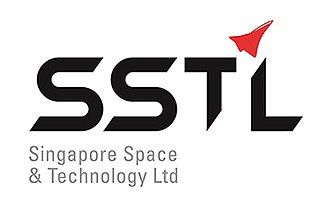
Singapore Space and Technology Ltd (SSTL) is a non-governmental space organization based in Singapore within the aerospace industry. SSTL is recognized by the International Astronautical Federation.
The Turkish Space Agency is a government agency for national aerospace research as a part of the space program of Turkey. It was formally established by a presidential decree on 13 December 2018.

MySejahtera is a mobile application developed by Entomo Malaysia and the Government of Malaysia to manage the COVID-19 outbreak in Malaysia. It can be used to conduct contact tracing, self-quarantine, and also book COVID-19 vaccination appointments.
The domain of international space politics gained significant traction during the Cold War. This was largely fuelled by the ongoing space race between the USA and the USSR. At this time in history, space exploration was an endeavour largely restricted to the global superpowers and seemed out of reach for many smaller, developing, nations to actively participate in. Subsequently, public concerns for the cost of research and development into novel space technologies did not receive sufficient policy and academic attention in Africa. As the Cold War reached its conclusion, political power began to diffuse across the world, and this led to many smaller nation states developing national and regional space capabilities. In the context of Africa, Nigeria, Algeria, Egypt and South Africa were the front-runners in terms of investments into space-related research and development.










